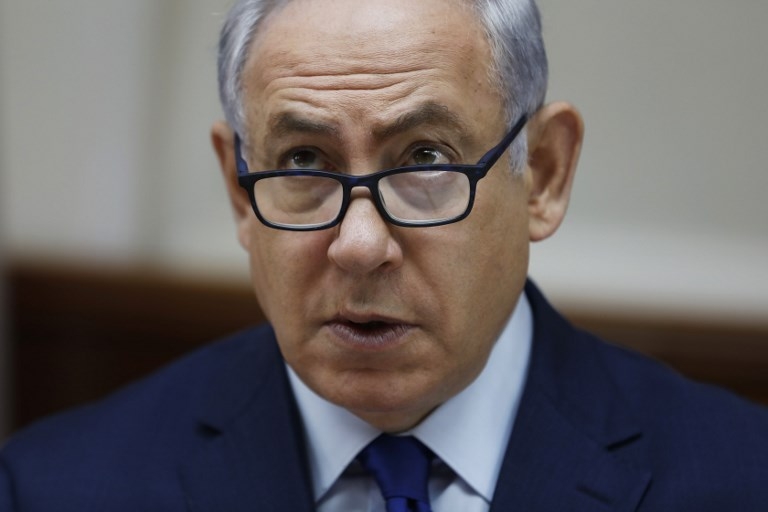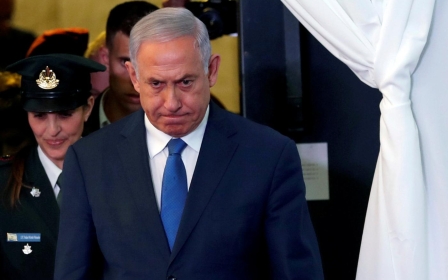Netanyahu appoints ministers to portfolios he was forced to resign

Israeli Prime Minister Benjamin Netanyahu announced on Monday he would appoint three ministers in portfolios he previously held but was forced to resign from following criminal charges.
Netanyahu named three members of his right-wing Likud party to head the welfare, agriculture and diaspora portfolios.
The premier was charged in November in three separate corruption cases and subsequently announced he would step down from the three ministerial posts he held besides serving as prime minister.
Israeli law stipulates that ministers facing criminal charges resign, but there is no such provision for the premiership.
Netanyahu had named lawmakers to the vacant posts earlier this month, but his plan was scuppered when the supreme court said a transitional government should "refrain from making changes in its composition".
As a result, the appointments announced on Monday go to one deputy minister and two lawmakers who are already cabinet members.
Deputy Foreign Minister Tzipi Hotovely will take on the diaspora ministry, a statement from Netanayahu's office said.
Tzachi Hanegbi, in addition to his duties as regional cooperation minister, will head the agriculture ministry.
And Ofir Akunis will take on the welfare ministry in addition to his science portfolio, the statement said.
The prime minister's office did not detail when the appointees would formally start their additional roles.
Farmers' vote
Israelis will go to the polls on 2 March for the third time in less than a year, after neither Netanyahu nor his rival Benny Gantz managed to form a majority coalition following votes in April and September.
A statement from Likud's electoral campaign voiced hope that Hanegbi, the new agriculture minister, would "bring back to the Likud farmers who didn't vote for the Likud in the last elections".
But the campaign risks being overshadowed by Netanyahu's legal woes, after the premier requested parliamentary immunity.
On Sunday, parliament Speaker Yuli Edelstein said lawmakers would meet on 28 January to discuss forming a committee which has the power to examine the premier's request.
Netanyahu protests his innocence and has accused the state prosecution of a witch hunt.
Middle East Eye delivers independent and unrivalled coverage and analysis of the Middle East, North Africa and beyond. To learn more about republishing this content and the associated fees, please fill out this form. More about MEE can be found here.




